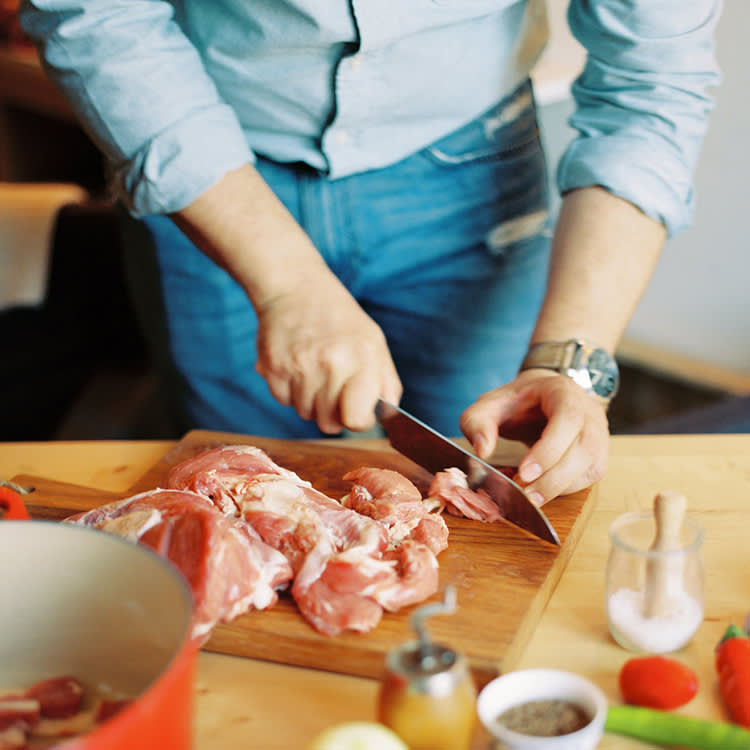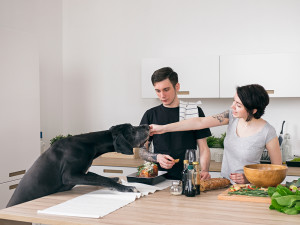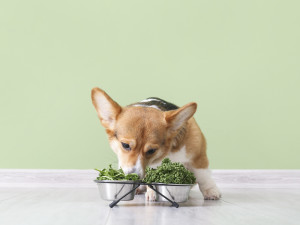How to Make Homemade Stew for Your Dog
Make this easy chicken stew for your pup.
It’s easy to learn how to provide our dogs with nutritious, delicious homemade meals that are reliably safe and made with little or no fuss. You’ll find that dogs love this recipe for homemade dog food stew, and it’s simple to make with basic ingredients that you have at home.
Homemade meals may even make it possible to feed your dog well for less. A 15-pound bag of high-end dry dog food costs approximately $42, and a 5.5 oz. can of high-end wet food runs approximately $2. Feeding a medium-sized dog two cans of wet mixed with two cups of dry food costs about $5 per day. That doesn’t include the treats, bones, and tidbits that inevitably make their way into their tummy. Compare that with four cups of Puppy Stew at $2.25 per day.
If you choose to feed your dog homemade dog food, it is important that you understand and provide what your dog needs to stay healthy; veterinary nutritionists can assist in developing suitable homemade diets. While caution was taken to give safe recommendations and accurate instructions in this article, it is impossible to predict an individual dog’s reaction to any food or ingredient. Readers should consult their vets and use personal judgment when applying this information to their own dogs’ diets.
*While tomatoes have been listed in some places as toxic, the toxicity actually comes from unripened (green) tomatoes, tomato leaves, and tomatoes stems — not fully ripe tomatoes.





